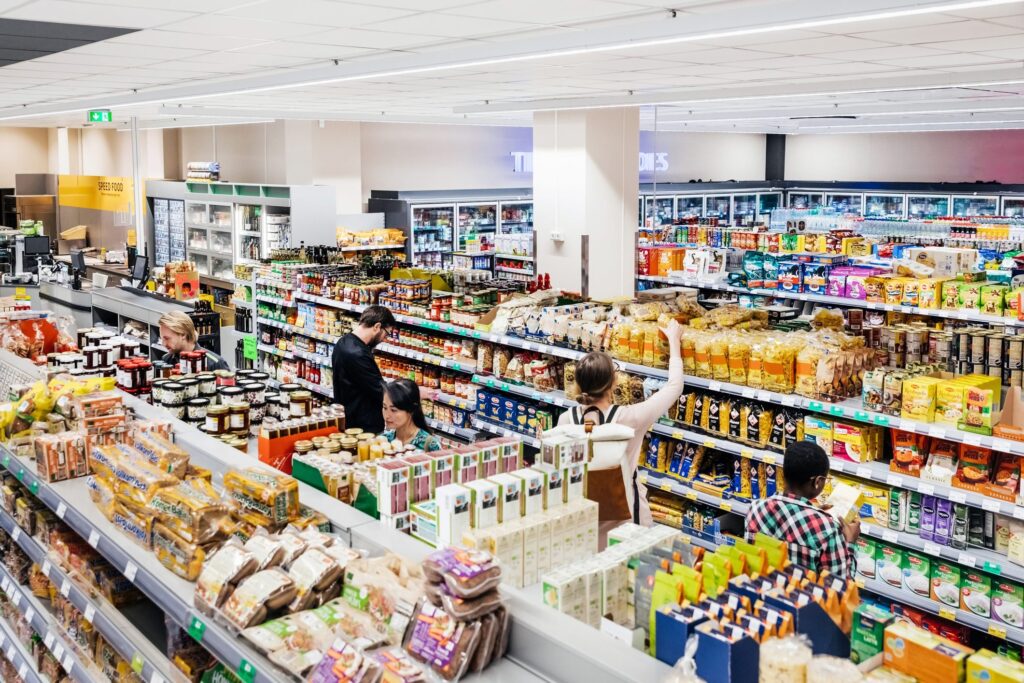
Top Challenges in Retail and How POS Systems Can Solve Them
The retail industry constantly evolves, driven by shifting consumer expectations, technological advancements, and economic pressures.
Retailers face numerous challenges that can hinder their ability to thrive in this competitive landscape. Fortunately, modern Point of Sale (POS) systems offer robust solutions to these challenges, enabling retailers to streamline operations, enhance customer experiences, and drive growth.
Here are some of the top challenges in retail and how POS systems can address them.
Inventory Management
Challenge: Managing inventory efficiently is one of retail's most critical yet challenging aspects. Overstocking can tie up capital and lead to waste while understocking can result in missed sales opportunities and dissatisfied customers.
Solution: A modern POS system provides real-time inventory tracking, ensuring accurate stock levels are maintained. It can automatically reorder products when stock levels are low and generate reports on sales trends, helping retailers make informed purchasing decisions. This leads to optimized inventory levels, reduced costs, and improved customer satisfaction.
Customer Experience
Challenge: Today's consumers expect personalized, seamless shopping experiences. Long checkout lines, lack of customized service, and inconsistent experiences across channels can drive customers away.
Solution: POS systems enhance the customer experience by speeding up transactions and integrating with Customer Relationship Management (CRM) tools to provide personalized service. Features like mobile POS terminals allow sales associates to assist customers and process transactions anywhere in the store, reducing wait times and enhancing service quality. Additionally, loyalty programs and targeted promotions can be managed through the POS system, fostering customer loyalty.
Sales and Revenue Tracking
Challenge: Accurately tracking sales and revenue across multiple channels and locations can be complex and time-consuming. Inaccurate data can lead to poor decision-making and lost revenue.
Solution: POS systems consolidate sales data from all channels, providing a comprehensive view of the business. Detailed reports and analytics help retailers track performance, identify trends, and make data-driven decisions. This visibility into sales and revenue streams enables retailers to optimize their strategies and maximize profitability.
Employee Management
Challenge: Scheduling, monitoring, and managing staff can be challenging, especially for retailers with a large workforce. Inefficient employee management can lead to understaffing or overstaffing, affecting customer service and operational efficiency.
Solution: POS systems often include employee management features, such as scheduling or time tracking. Retailers can easily create and adjust schedules and monitor clock-ins and clock-outs. This ensures optimal staffing levels and improved workforce productivity.
Omnichannel Integration
Challenge: Retailers need to provide a consistent shopping experience across multiple channels, including in-store, online, and mobile. Disjointed systems can lead to inconsistencies and inefficiencies.
Solution: A robust POS system integrates seamlessly with e-commerce platforms, enabling a unified view of inventory, sales, and customer data across all channels. This ensures a consistent shopping experience for customers, whether they are buying online or in-store. Omnichannel integration also simplifies order fulfillment and returns management, enhancing overall efficiency.
Foot Locker and Urban Outfitters are excellent examples of retailers that succeeded in omnichannel experience and one of the most important reasons for their distinction and success was their reliance on technology.
Security Concerns
Challenge: Protecting sensitive customer and business data is paramount in the retail industry. Data breaches and cyberattacks can have severe consequences, including financial loss and damage to reputation.
Solution: Modern POS systems come equipped with advanced security features, such as end-to-end encryption, secure payment processing, and compliance with industry standards. These measures protect sensitive data and reduce the risk of fraud and cyberattacks, giving retailers and their customers peace of mind.
Adapting to Technological Advancements
Challenge: Keeping up with rapidly changing technology can be overwhelming and costly for retailers. Failure to adapt can result in outdated systems that hinder growth and competitiveness.
Solution: POS systems are designed to be scalable and adaptable, allowing retailers to easily integrate new technologies and features as they become available. Regular software updates and support from POS providers ensure that retailers can stay ahead of technological advancements without significant disruption or expense.
The retail industry is full of challenges, but the right POS system can transform these challenges into opportunities for growth and success. By leveraging the capabilities of modern POS software, retailers can optimize their operations, enhance customer experiences, and drive profitability.
Whether it's managing inventory, improving customer service, tracking sales, or ensuring data security, a comprehensive POS system is an indispensable tool for navigating the complexities of the retail landscape.





